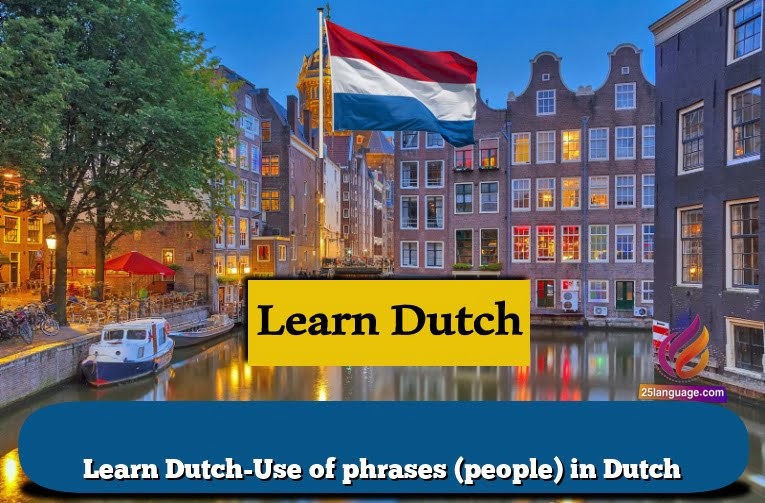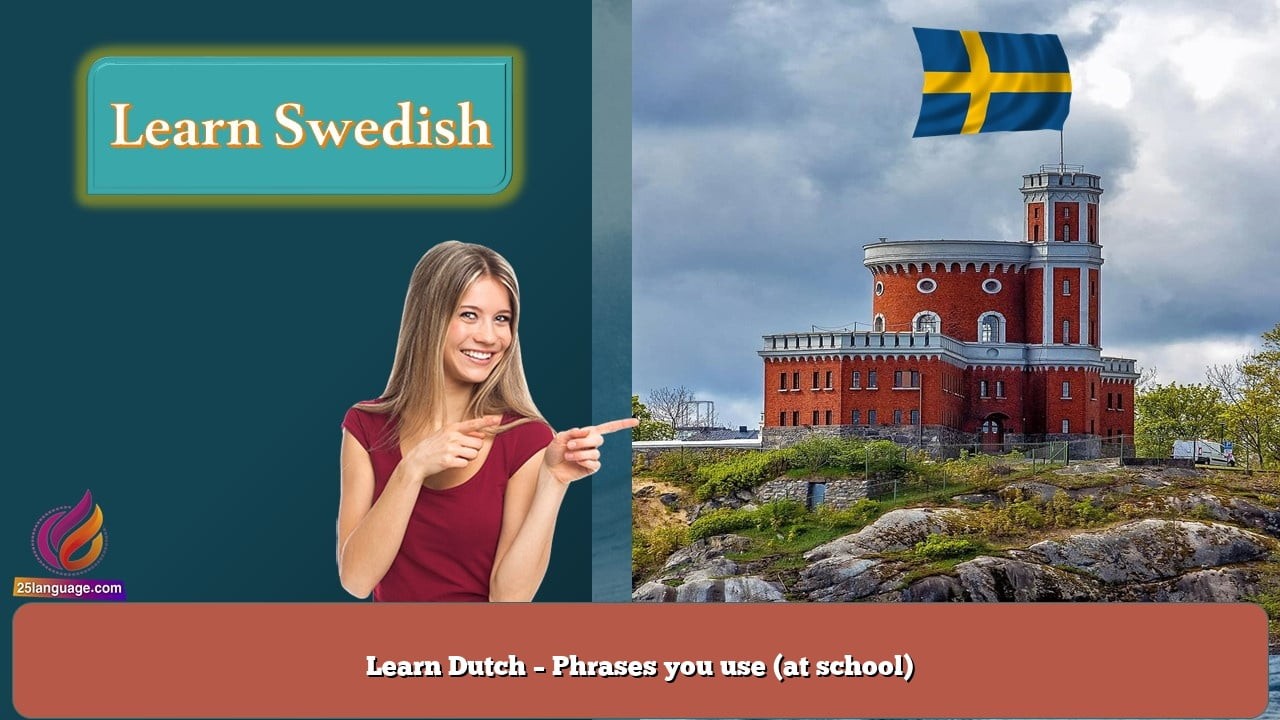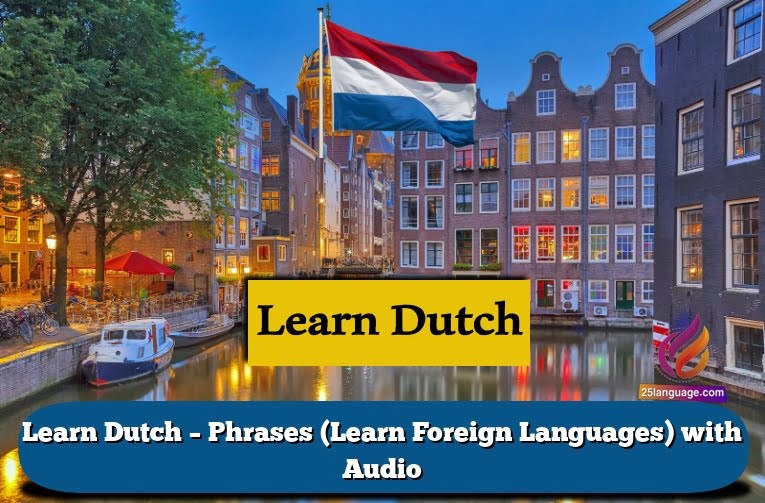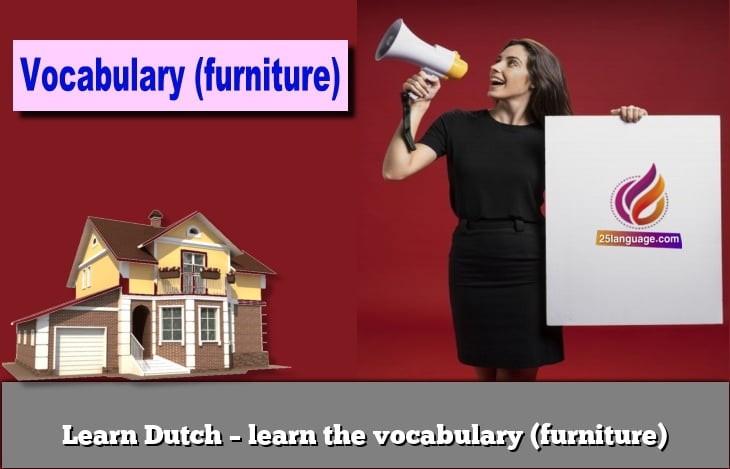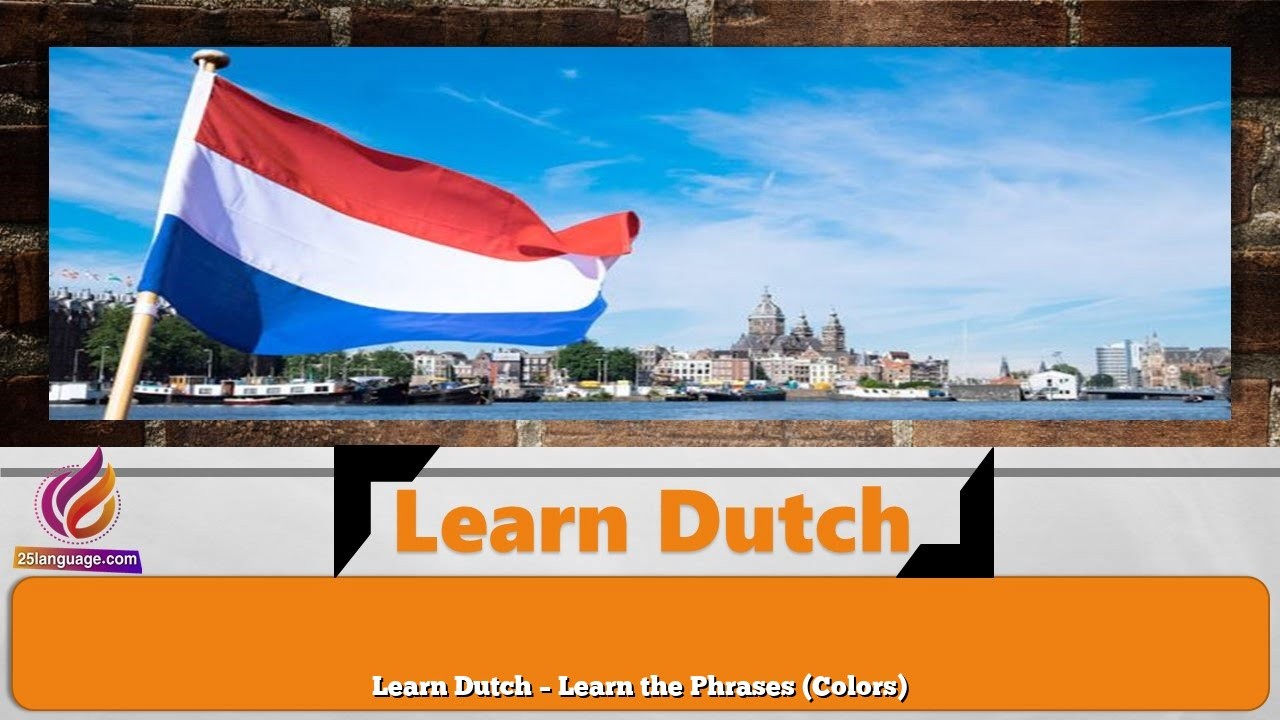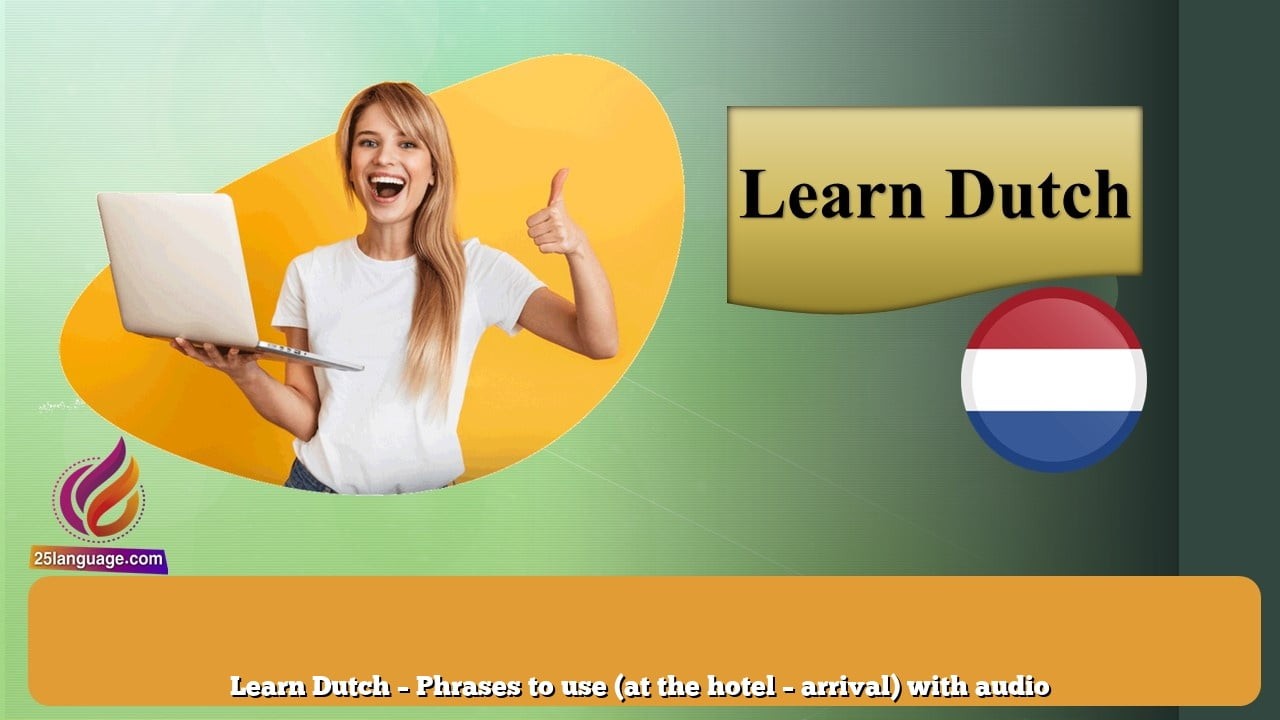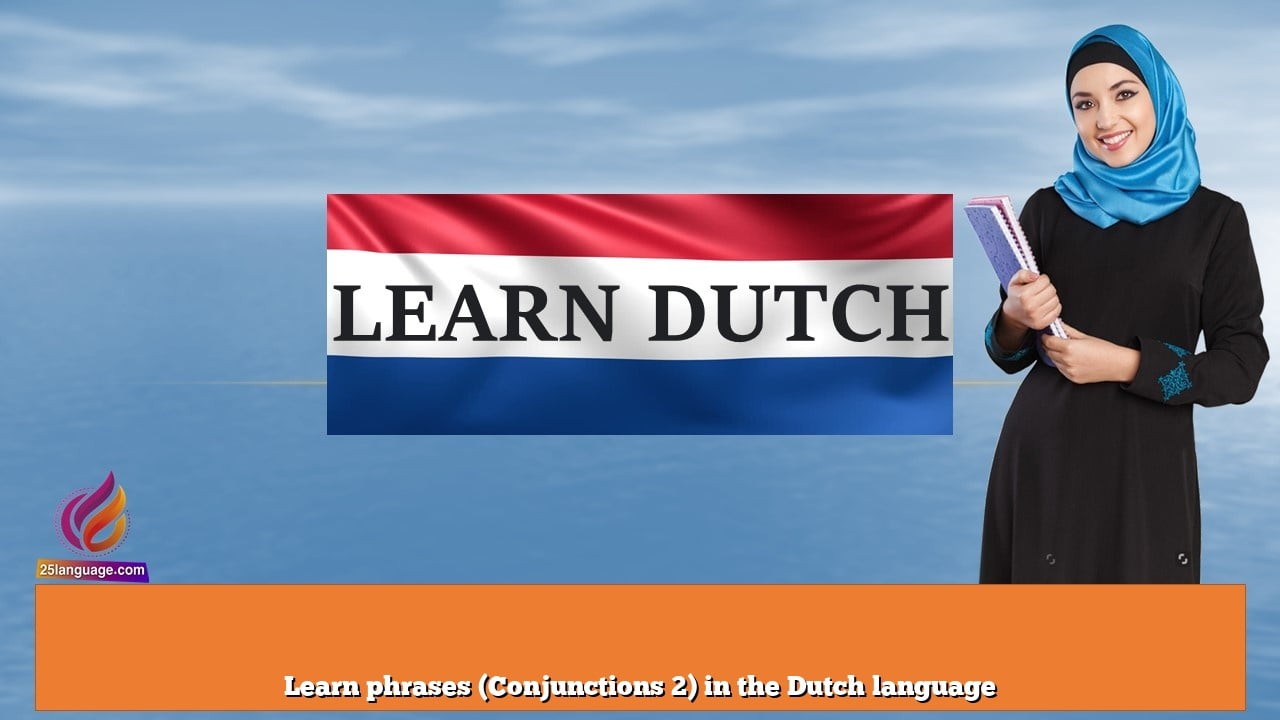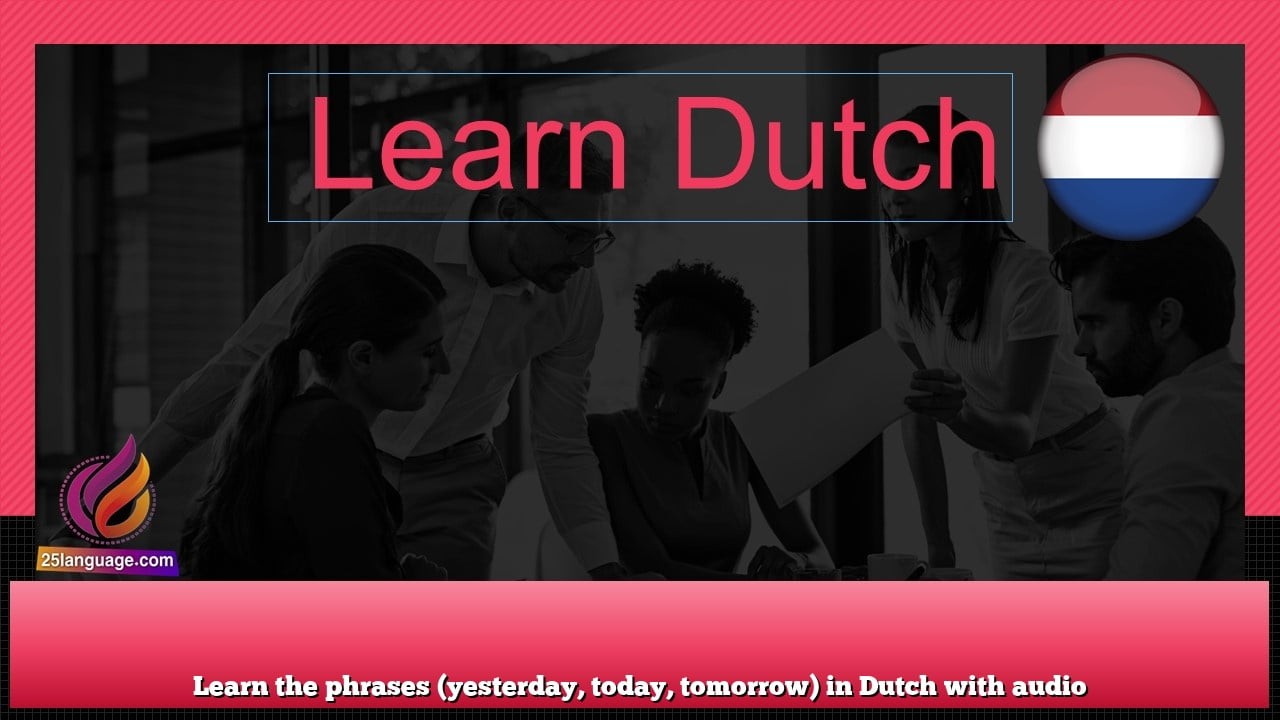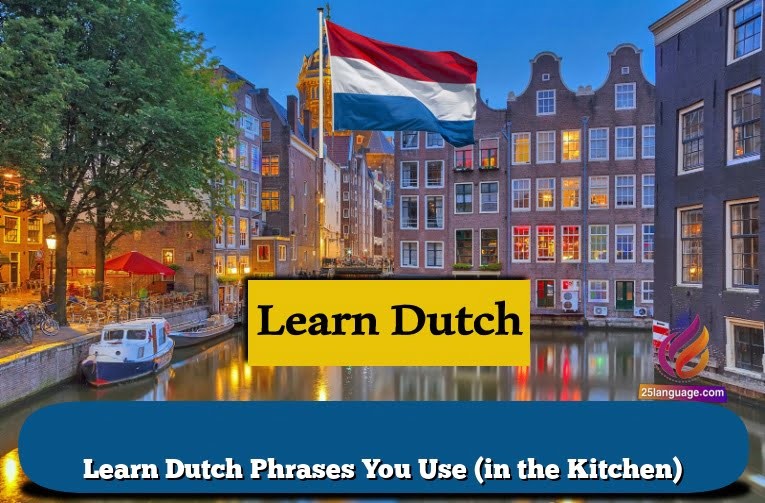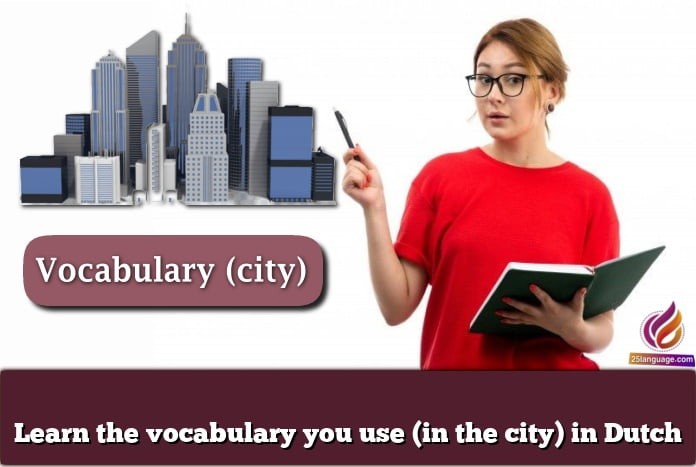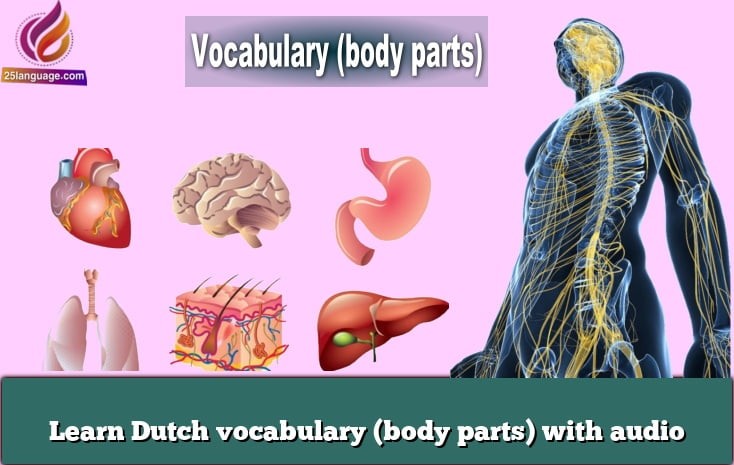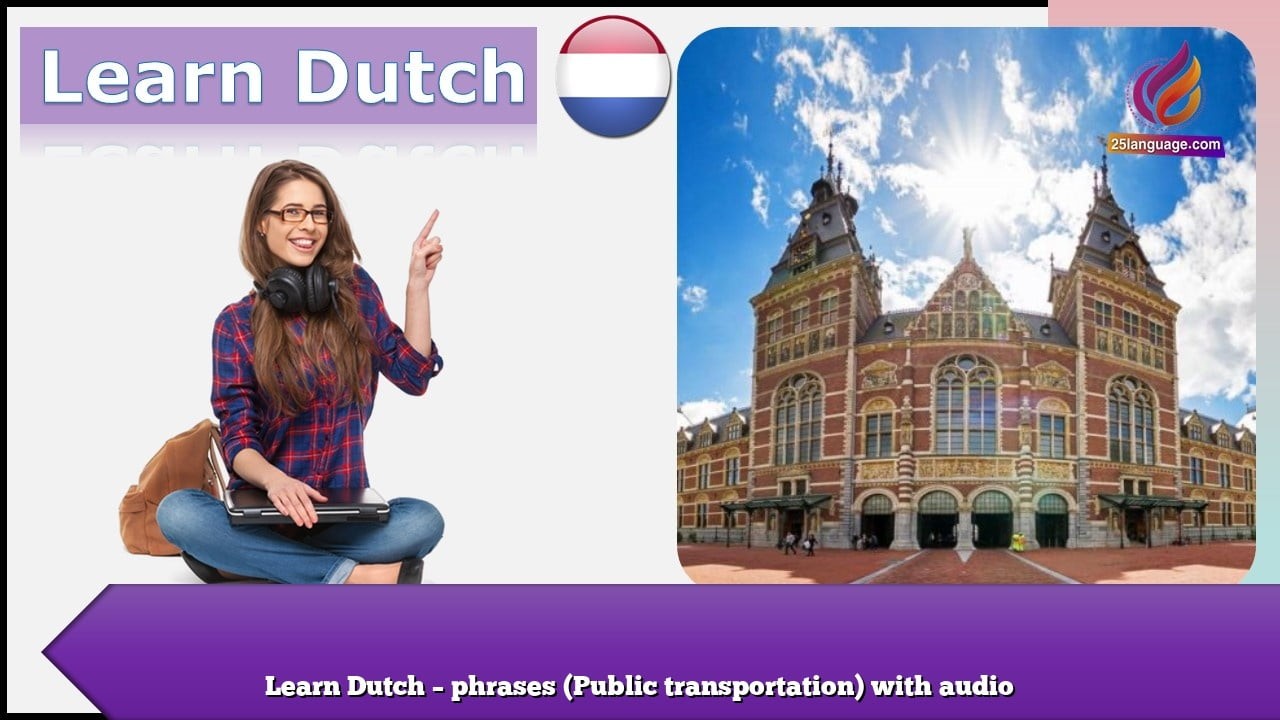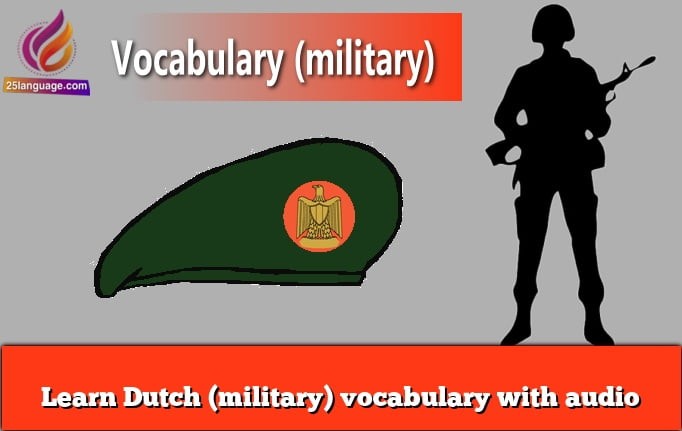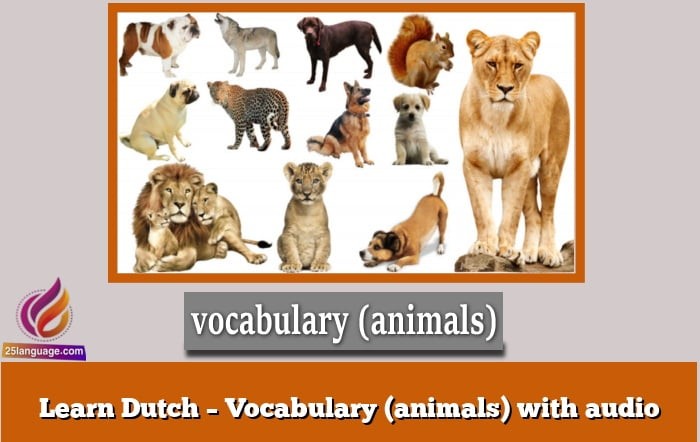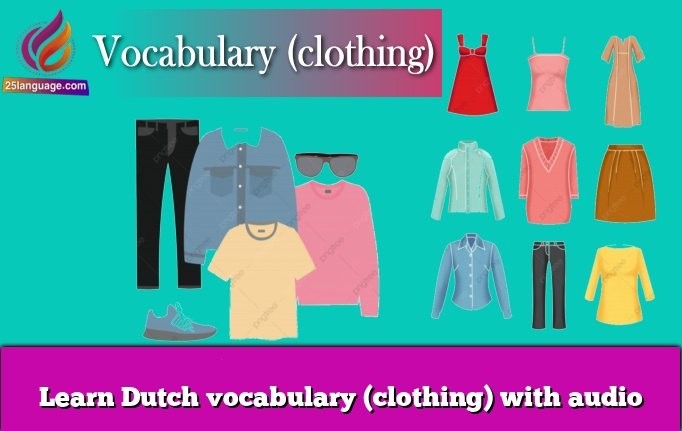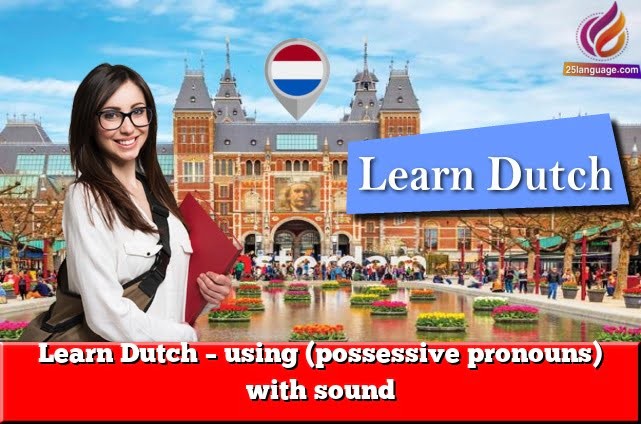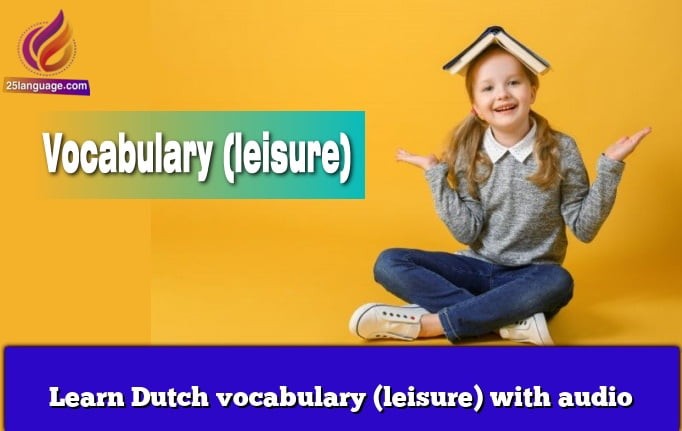Past tense of modal verbs in Dutch 2
Learn Dutch phrases (Past tense of modal verbs 2)

In Dutch, the past tense of modal verbs is used to talk about past actions or events that are related to possibility, ability, permission, or obligation. Modal verbs are commonly used in the present tense to express these ideas, but they can also be used in the past tense to describe what happened in the past.
The past tense of modal verbs in Dutch is formed by using the past participle of the modal verb, followed by the past tense of the auxiliary verb “hebben” (to have) or “zijn” (to be). The past participle of most modal verbs is the same as the infinitive form of the verb.
| Dutch Sentence | English Translation |
|---|---|
| Hij kon niet zwemmen toen hij jong was. | He couldn’t swim when he was young. |
| [responsivevoice voice="Danish Female" rate="0.8" buttontext="►"]Zij wilden graag naar de film gaan gisteravond. | They wanted to go to the movie last night. |
| Wij mochten niet praten tijdens de toets. | We weren’t allowed to talk during the test. |
| Hij moest vroeg opstaan om naar zijn werk te gaan. | He had to wake up early to go to work. |
| Zij konden niet geloven wat ze hoorden. | They couldn’t believe what they heard. |
| Wij wilden graag op vakantie gaan deze zomer. | We wanted to go on vacation this summer. |
| Hij mocht niet naar het feestje vanwege zijn slechte gedrag. | He wasn’t allowed to go to the party because of his bad behavior. |
| Zij moesten hard werken om het project af te krijgen. | They had to work hard to finish the project. |
| Wij konden niet wachten om het cadeau uit te pakken. | We couldn’t wait to unwrap the present. |
| Hij wilde graag een kopje koffie drinken voordat hij ging slapen. | He wanted to drink a cup of coffee before going to sleep. |
| Zij mochten niet roken in het restaurant. | They weren’t allowed to smoke in the restaurant. |
| Wij moesten ons haasten om op tijd te zijn voor de trein. | We had to hurry to be on time for the train. |
| Hij kon niet stoppen met nadenken over zijn toekomst. | He couldn’t stop thinking about his future. |
| Zij wilden niet met ons mee naar het museum. | They didn’t want to come with us to the museum. |
| Wij moesten ons concentreren om de presentatie goed te geven. | We had to concentrate to give a good presentation. |
| Hij wilde niet dat zij zijn telefoonnummer had. | He didn’t want her to have his phone number. |
| Zij konden niet naar het feestje komen vanwege familiebezoek. | They couldn’t come to the party because of family visit. |
| Wij wilden graag naar het concert gaan, maar we hadden geen kaartjes. | We wanted to go to the concert, but we didn’t have tickets. |
| Hij moest naar de dokter vanwege zijn pijnlijke knie. | He had to go to the doctor because of his painful knee. |
| Zij konden niet geloven dat zij de loterij hadden gewonnen. | They couldn’t believe they had won the lottery. |

